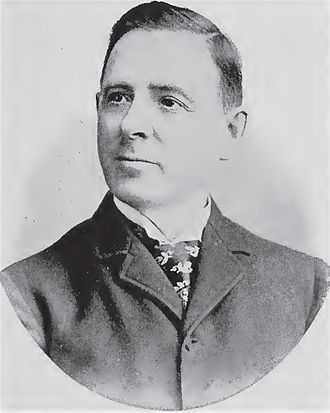Jackson men left lasting political legacies, including the founding of Maine’s Republican Party
JACKSON — Two men from the small Waldo County town of Jackson had a mighty impact on the political scene in a pair of Northeast states, one providing a lasting impact on the Maine political spectrum and the other positively affecting a New York city.
Henry Hill Boody, a Jackson native, was born in November 1816. After graduating from Bowdoin College in 1842 at the age of 26, he immediately became a tutor in Greek at Bowdoin, a feat believed to be the first time in the college’s history a graduate immediately became a college employee.
He later rose to the rank of professor of rhetoric and oratory in 1845, a position he held until 1854 when he stepped down and was elected to the Maine State Legislature.
In May 1854, he witnessed the impact the passage of the Kansas-Nebraska Act had on politics while in Washington D.C., according to the Pejepscot Historical Society.
“He was so disheartened with the responses of Whigs and Democrats (the two major political parties [at] the time) to the evils of slavery,” according to the Society, that he and Fryeburg resident General Samuel Fessenden organized the Maine Republican Party.
After organizing the Maine branch of the Republican Party, Boody and Fessenden found 30 of 31 senators and 114 of 151 representatives were ready to join, according to an address presented by Everett Morton during the Town of Jackson’s celebration of the 100th anniversary of Jackson as a plantation.
Maine’s Republican Party became a “power” in state politics, according to Morton. The establishment of the Republican Party in Maine earned Boody the title “Father of the Republican Party in Maine,” according to the Society.
Following his stint as a politician, Boody moved to New York in 1859 and devoted his time to finance and investment. Initially, he was involved with several railroad companies thanks to his belief that, according to the historical society, railroads should consolidate rather than compete.
“Boody is cited as being at least in part responsible for the laying of 2,000 to 3,000 miles of railroad track in the U.S.,” the Society noted. “His investments led Boody to become a millionaire.”
Later, he moved to banking with the founding of Boody, McLellan & Company, where his nephew, David, worked for him. To honor the legacy of Boody, his alma mater named Boody Street near the Bowdoin campus after him in 1853.
His former Brunswick home later was owned by a Bowdoin professor, whose daughter would later donate the residence to the College. The residence is now used as the residence of the College’s dean. The house, according to the historical society, is a “gorgeous wooden Gothic ‘stick-style’ home often called ‘the most interesting house’ in Brunswick.”
Boody’s nephew, David Augustus Boody, was also involved in politics. The younger Boody was also born in Jackson, in August 1837. After attending school in Massachusetts, he was admitted to the bar in 1860 in Belfast. He later practiced in Camden before moving in 1862 to Brooklyn, New York.
In Brooklyn, the younger Boody joined his uncle’s Boody, McLellan & Co. banking firm before launching an unsuccessful bid for a seat in the U.S. Congress in 1882. David, finally, found himself as a member of Congress in March 1891, though he resigned a few months later in October to accept the position as Brooklyn’s mayor until 1893. As mayor, he was instrumental in establishing a system of free libraries, according to Morton.
“It was, I think, the most satisfactory act of his life,” Morton said.
Boody also served as the president of the board of trustees for the Brooklyn Public Library from 1897 until his death in 1930. As a way to honor Boody, the Brooklyn Fire Department named a fireboat after him in 1892, operating the boat until a 1914 retirement to cut costs, according to the New York Times.
The boat was a wooden-hulled steam powered vessel 106 feet long, 23 feet wide and seven feet deep, according to Clarence Meek’s “Fireboats Through The Years” article, with pumps projecting 6,500 gallons per minute.
Boody is also honored, to this day, through a public middle school in Brooklyn bearing his name.
Event Date
Address
United States
























